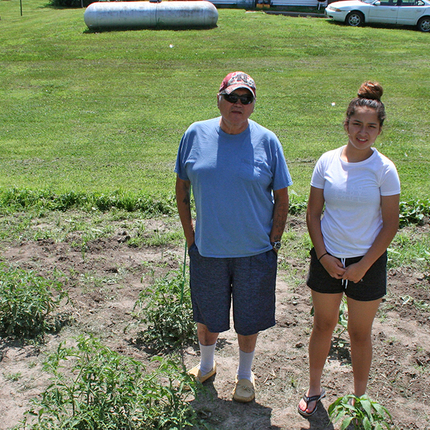Six years ago, three members of our staff started meeting with representatives of the Santee Sioux Nation in Northeast Nebraska. The conversation centered on building food security for tribal members.
In-depth conversation and careful planning helped everyone who came to the table build trust with one another. Through dialogue, it became clear there was an opportunity to collaborate with local community members.
We started our first year with a simple approach: help people in communities with low incomes, a high diabetes rate, and limited access to fresh foods grow enough to supplement their food budgets, have some extra to sell, and improve nutrition of family and neighbors. Perhaps some could build that into businesses. We held gardening classes, gave demonstrations of how to use fresh foods at home, advised family gardeners, and started a farmers market.
The project later expanded to the Omaha Nation two hours southeast of Santee. The work continues on both reservations today, attracting support and participation from neighboring communities, as well.
As part of the project, community members have now established more than 300 backyard and container gardens, and have launched farmers markets in the communities of Santee, Walthill, and Macy. This progress has led to even more community involvement and local ownership.
The 10-year vision of the project team is to reach full food security in every household on each reservation. In the next two years, the goal is to expand access to fresh, nutritious food through gardening, and to increase community capacity to grow, prepare, preserve, and use fresh produce. Community members now tell us the project is helping foster community and cultural connections through gardening. Those connections include youth programs using food for cultural education and diversion from drug abuse.
This work requires a long-term investment. Success at the community level has helped motivate renewed and increased investment from core funders. Recent awards from the U.S. Department of Agriculture, the Newman’s Own Foundation, and the Peter Kiewit Foundation ensure the project will continue for the next three years.
Like all of our work at the Center, this effort is grounded in a sense of justice combined with a belief that the future can be brighter. The challenges we tackle often require patience, and the path to success can be long, winding, and sometimes steep. The prospect of achieving our goals can often seem impossible until we have arrived.
We are committed to continuing the pursuit of justice for these – and all – rural communities.




